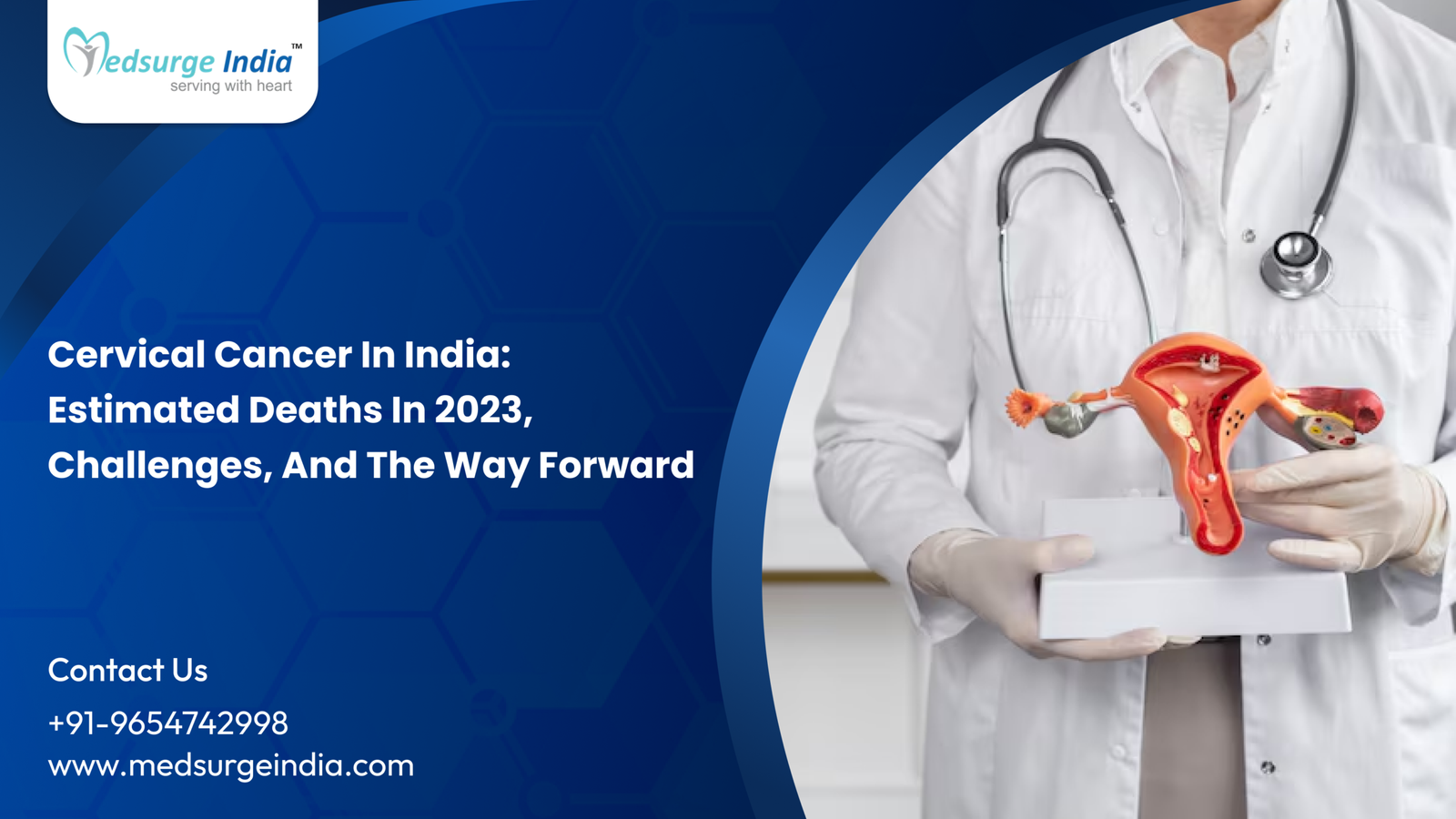
Cervical Cancer in India: Estimated Deaths in 2023, Challenges, and the Way Forward
Cervical cancer continues to pose a major public health challenge in India, significantly impacting cancer-related morbidity and mortality rates among women. In 2023, it was estimated that there were over 340,000 cases of cervical cancer in the country. This statistic emphasizes the urgent need for effective prevention, early detection, and treatment strategies to address this health issue.
Epidemiology of Cervical Cancer in India
Cervical cancer is the second most common cancer among women in India, with a notable prevalence in the age group of 15 to 44 years. Current data suggests that around 123,907 women are diagnosed with cervical cancer each year, leading to approximately 77,348 deaths from the disease. The age-standardized incidence rate is reported at 18.0 per 100,000 women, while the mortality rate is 11.4 per 100,000 women.
The impact of cervical cancer is not uniform across India, with significant regional variations. For example, Mizoram state has the highest age-adjusted incidence rate at 23.07 per 100,000 women, whereas Dibrugarh district reports the lowest rate at 4.91 per 100,000 women. This variation underscores the role of regional factors such as healthcare accessibility, socioeconomic conditions, and levels of awareness in influencing the incidence of cervical cancer.
The leading cause of cervical cancer is persistent infection with high-risk types of human papillomavirus (HPV), especially HPV-16 and HPV-18. In India, it is estimated that approximately 5.0% of women in the general population are infected with cervical HPV-16/18 at any given time. Alarmingly, these HPV types account for 83.2% of invasive cervical cancer cases.
Additional risk factors include early initiation of sexual activity, having multiple sexual partners, high number of childbirths, prolonged use of oral contraceptives, tobacco consumption, and co-infection with HIV. Socioeconomic challenges, such as inadequate access to healthcare and a lack of awareness regarding cervical cancer and its preventive measures, further increase the risk.
Screening and Prevention Efforts
Regular screening is essential for the early detection of cervical cancer, which can help lower its incidence and mortality rates. In India, the National Programme for Prevention and Control of Cancer, Diabetes, Cardiovascular Diseases, and Stroke (NPCDCS), initiated in 2010, incorporates cervical cancer screening initiatives. The recommended approach is Visual Inspection with Acetic Acid (VIA) for women aged 30 to 65, to be performed every five years.
However, adherence to these guidelines is lacking, with a nationally representative survey indicating a lifetime screening prevalence of only 29.8% among women aged 30 to 49. Barriers to effective screening include insufficient awareness, cultural stigmas, inadequate healthcare infrastructure, and a shortage of trained professionals.
HPV vaccination represents another vital preventive strategy. Currently, there is no comprehensive national HPV vaccination program in India, although some state-level initiatives have been implemented, such as in Sikkim and specific districts of Punjab, along with opportunistic programs in Delhi. Increasing the coverage of HPV vaccination could significantly alleviate the future incidence of cervical cancer.
Challenges and Opportunities
Cervical cancer control in India faces several significant obstacles. Key issues include a lack of public awareness, insufficient coverage of screening and vaccination programs, and unequal access to healthcare services between urban and rural populations. Furthermore, sociocultural beliefs and misunderstandings about cervical cancer often lead to delays in seeking necessary medical care.
To effectively tackle these challenges, a comprehensive strategy is essential:
Public Awareness Initiatives: Launching nationwide educational campaigns to inform the public about cervical cancer, its risk factors, and the critical role of screening and vaccination.
Enhancing Healthcare Infrastructure: Improving the capabilities of healthcare facilities, particularly in rural regions, to offer screening and treatment options.
Training Healthcare Professionals: Equipping healthcare workers with the necessary skills to perform screenings such as Visual Inspection with Acetic Acid (VIA) and to administer HPV vaccines.
Policy Development: Creating and enforcing policies that facilitate widespread screening and vaccination, including the integration of HPV vaccination into the national immunization program.
Community Involvement: Engaging community leaders and organizations to foster acceptance and encourage participation in screening and vaccination initiatives.
Conclusion
Cervical cancer remains a major health challenge in India, with a significant number of cases and fatalities reported each year. Although there have been initiatives to promote screening and HPV vaccination, considerable gaps still exist. A unified approach that includes public education, improvements in healthcare infrastructure, supportive policies, and community involvement is crucial to decreasing the incidence and mortality rates associated with cervical cancer in India.











